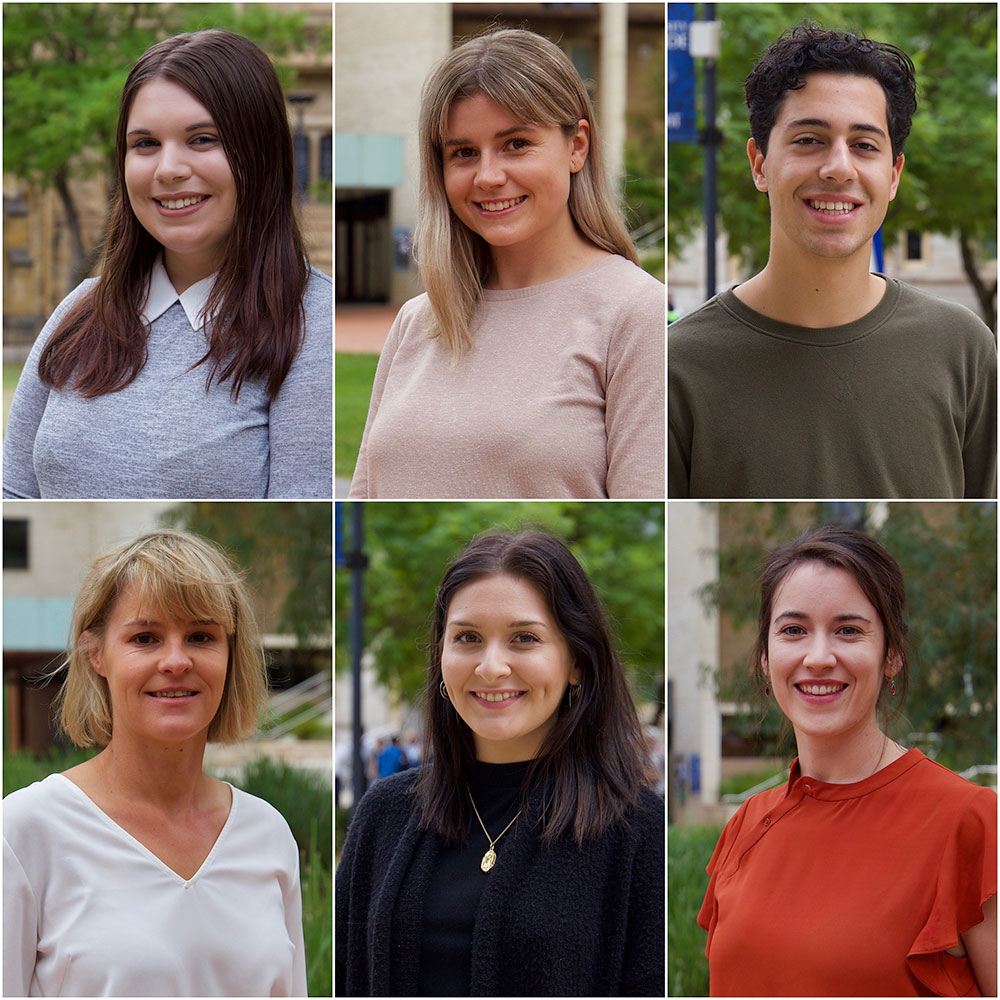Amanda Jones
26 June 2018: Six high-achieving student journalists from the University of Canberra and University of Adelaide will put their interviewing skills to good use when they visit the Middle East next month.
Ruby Becker, Sarah Hill and Gabrielle Kneipp from the University of Canberra will be joined by University of Adelaide students Ashleigh Roberts, Benito Carbone and Dale Carter on an international study tour of Qatar and Jordan.
The upcoming trip from 6-24 July is part of the Australia-Middle East Journalism Exchange (AMEJE) program, which aims to improve cross-cultural understanding by fostering better informed journalism.
While in Qatar and Jordan, students will take part in professional and cultural activities designed to build their skills and knowledge in an effort to enhance their career prospects. They’ll visit the Al Jazeera newsroom in Doha and Arab Reporters for Investigative Journalism (ARIJ) in Amman.
They will also visit cultural institutions, mosques, Petra, and the Jerash refugee camp in Jordan.
“We hope the tour will spark an ongoing interest in the Middle East and set up these future journalists for a career of producing better journalism about the region,” AMEJE managing director and University of Canberra journalism tutor Dr Scott Bridges said.
Dr Bridges said one of the key components of the tours is peer collaboration between the Australian delegates and their student counterparts in Qatar and Jordan.
“We will work especially closely with Middle East University in Amman. Not only do our delegates learn so much from building close relationships with their peers, but they will also work collaboratively on journalism projects while on tour,” he said.
The program began in 2015 but this is the first year it includes students outside the University of Canberra.
The three University of Adelaide delegates have enrolled in a unit at the University in order to take part in the tour.
“With six places available on this year’s tour, we decided to expand our intake beyond UC to put together a delegation of the best journalism students from not just Canberra, but a number of cities in Australia,” Dr Bridges said.
Ms Becker, who is studying a Bachelor of Journalism, said she was looking forward to experiencing Middle Eastern culture and learning more about the region.
“My goal is to take in as much as I can, to learn objectively and meet new people,” Ms Becker said.
“I think this will not only help me improve professionally, but it will make me a stronger and more accepting person.
“I’m also looking forward to working on my journalism project and creating a piece of work that I can reflect on and use throughout my career.”
Ms Hill, who is studying a Bachelor of Communications and Journalism, said she was looking forward to seeing the Al Jazeera newsroom in action and meeting Middle East University students.
“I’m working on a project at the moment with the students about young people in Jordan – what they’re passionate about and what their hopes are for the future,” Ms Hill said.
“We’re really lucky to be part of this amazing program and I’m looking forward to meeting them and hearing their stories. I hope to produce amazing stories that do justice to the people I meet.”
Bachelor of Communication in Journalism and International Studies student Gabrielle Kneipp said the trip provides an opportunity for delegates to make contacts with future journalists of Jordan and develop a better understanding of how they report on national issues.
The 25-year-old said she also hopes to gain a better understanding of the region itself.
“I’m really interested in ancient history and look forward to visiting Petra and meeting team members and volunteers of the Petra National Trust to learn about their work, the archaeology and the culture that once flourished there,” she said. “It will be a fascinating story to bring home.”
The Australia-Middle East Journalism Exchange study tour is supported by the Department of Foreign Affairs and Trade’s Council for Australian-Arab Relations (CAAR).



